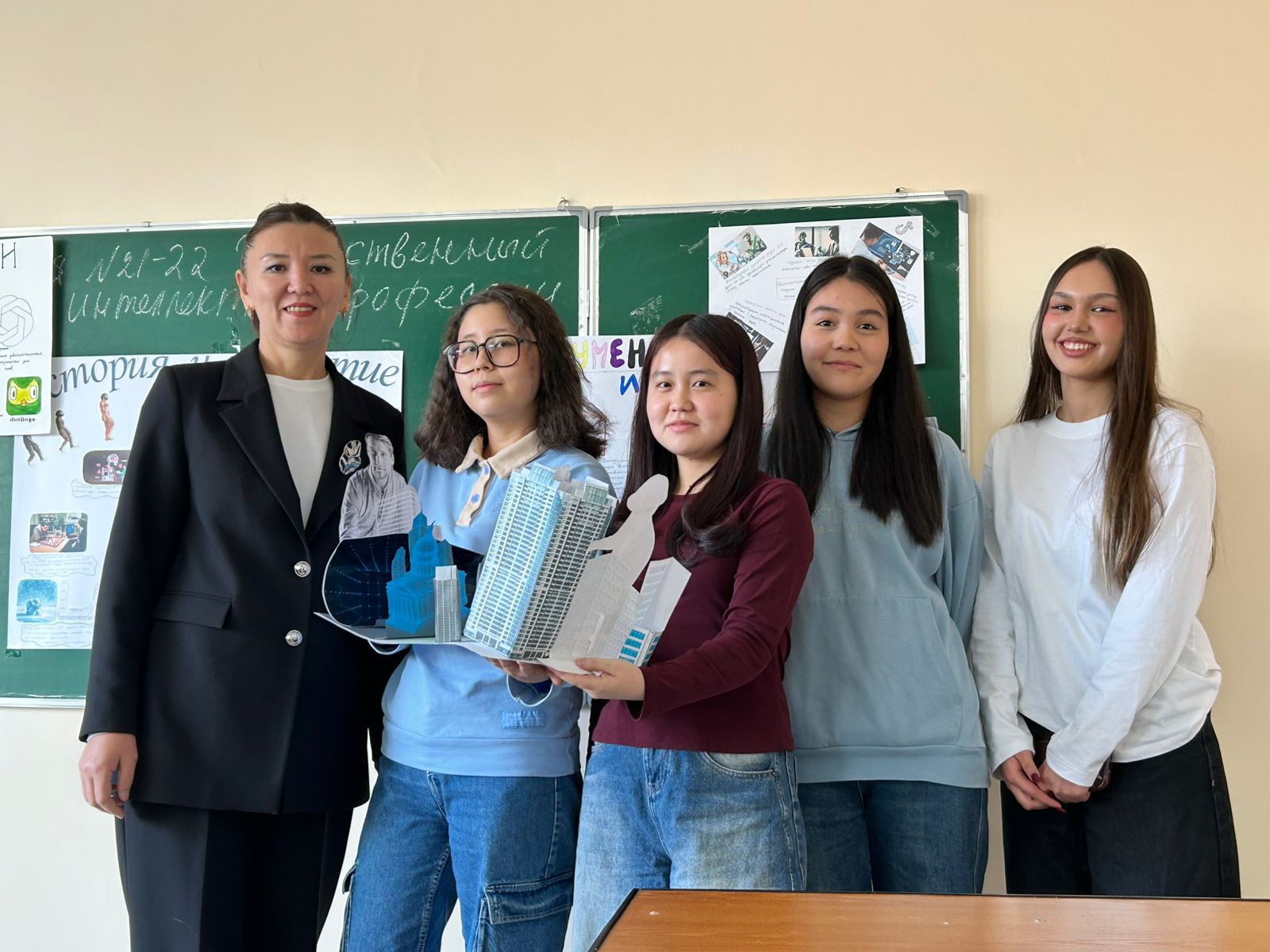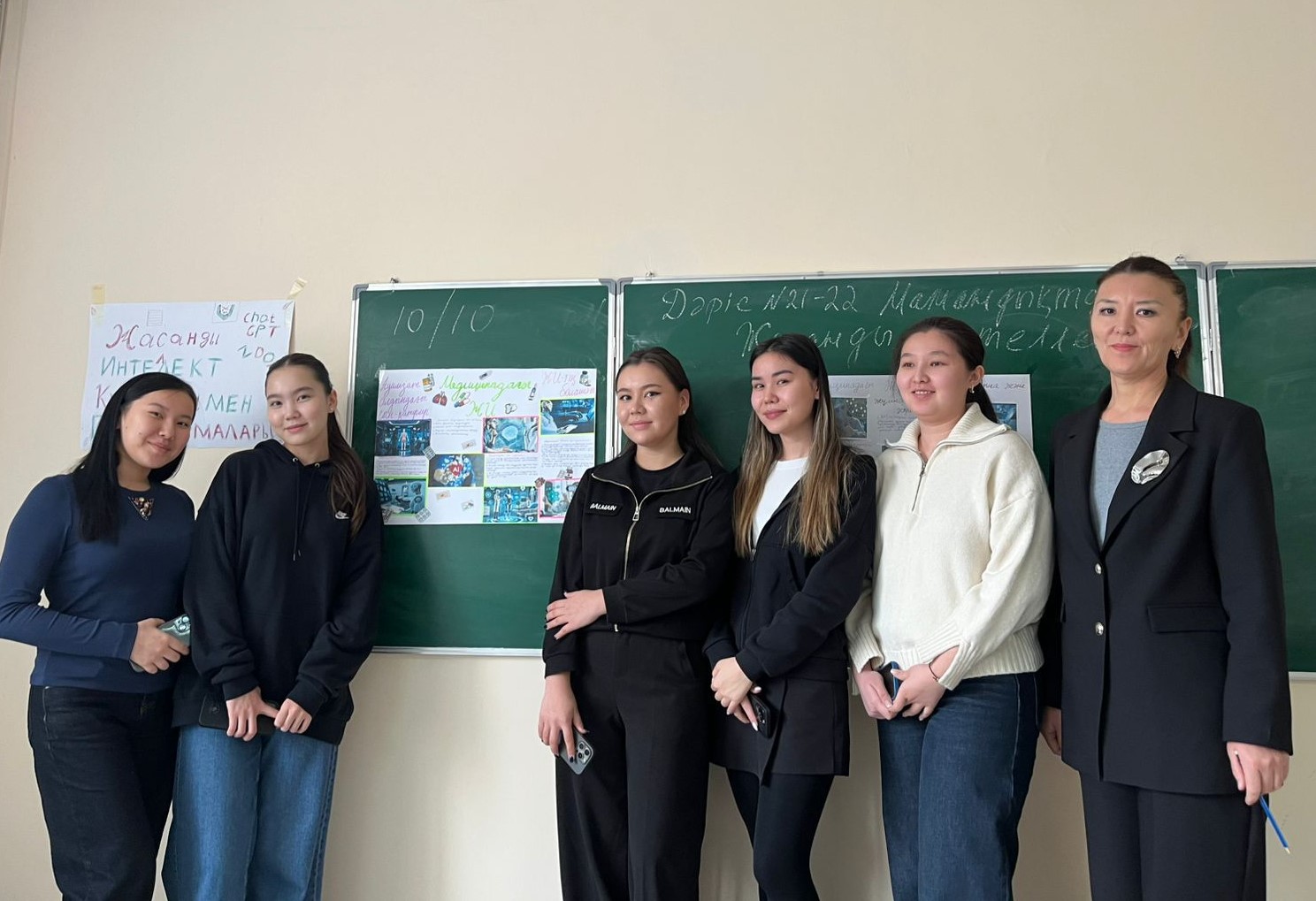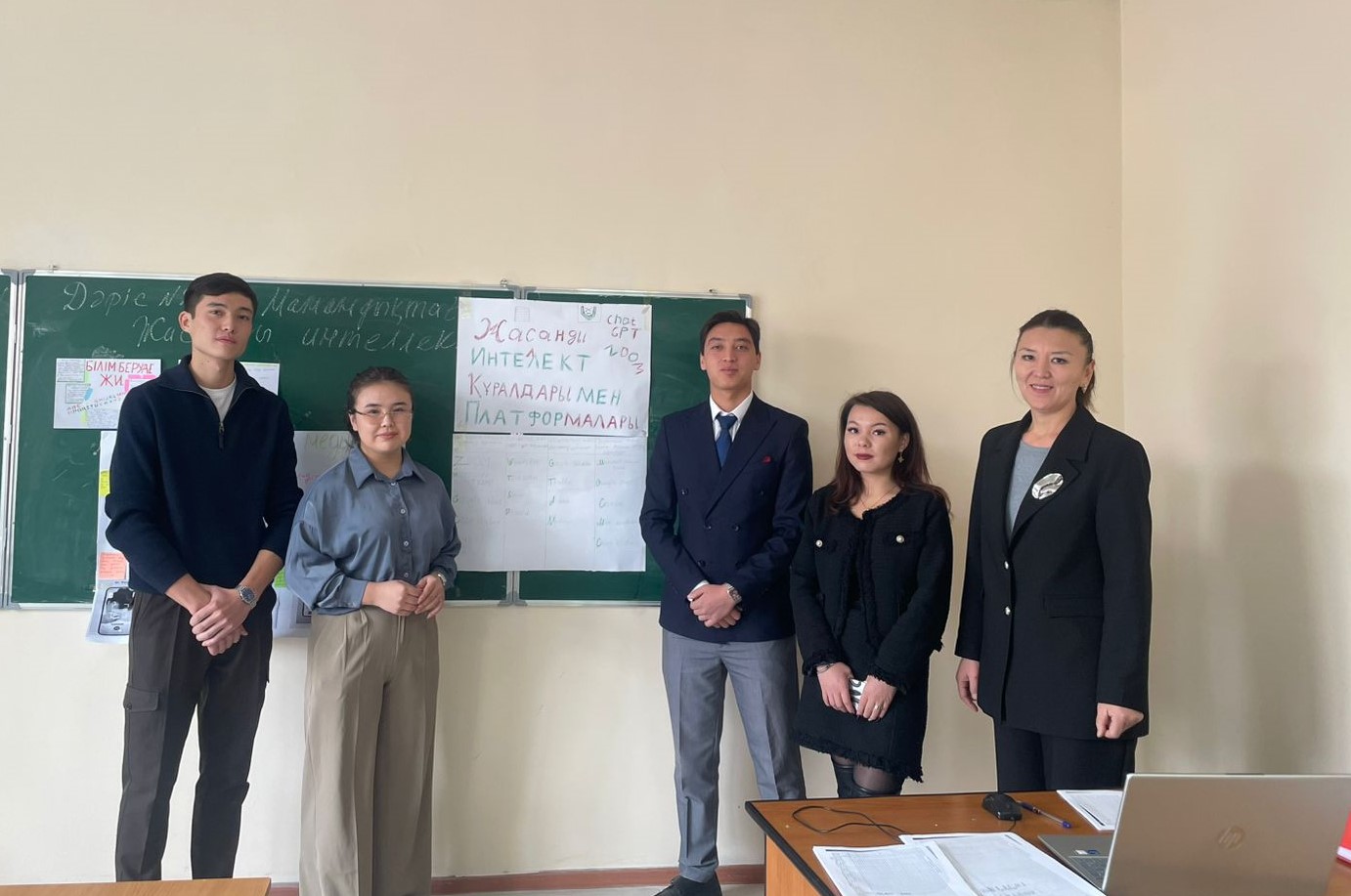News
On November 10–11, 2025, senior lecturer of the Department of Information and Communication Technologies of the Higher School of Information Technology and Energy, M.M. Turganbekova, conducted lecture sessions on the topic “Artificial Intelligence in Profession” with third-year students of the Faculty of Philology (groups: FI23-1dk, FI23-1k, FI23-5k, FI23-4kr, FI23-3k1, FI23-3k2, FI23-3k3, FI23-1k2, FI24-1ks, FI23-3dr, FI23-3r1, FI23-3r2).
The classes were held in the poster-presentation format, based on the experience gained during an international academic internship at the University of Illinois (USA).
This format was aimed at implementing innovative and active teaching methods, developing students’ critical and creative thinking skills, and enhancing their interest in modern digital technologies.
This format was aimed at implementing innovative and active teaching methods, developing students’ critical and creative thinking skills, and enhancing their interest in modern digital technologies.
During the lectures, students became familiar with the basic concepts and principles of artificial intelligence, its applications in various professional fields, and examples of modern AI tools and platforms such as ChatGPT, DALL·E, Canva AI, Midjourney, and others.
Particular attention was given to ethical and legal aspects of artificial intelligence use.
Students discussed the ethical norms that must be observed when working with AI (academic integrity, data protection, copyright compliance, and avoidance of plagiarism), as well as the legal risks and restrictions related to the use of digital technologies.
They also received practical recommendations on how to use AI tools safely and responsibly in educational and professional activities.
Students discussed the ethical norms that must be observed when working with AI (academic integrity, data protection, copyright compliance, and avoidance of plagiarism), as well as the legal risks and restrictions related to the use of digital technologies.
They also received practical recommendations on how to use AI tools safely and responsibly in educational and professional activities.
The poster-presentation format allowed students to:
• work on their own mini-projects and visual posters;
• demonstrate their knowledge, analytical, and creative abilities;
• actively participate in discussions and presentations;
• develop independent and research-oriented thinking skills.
• work on their own mini-projects and visual posters;
• demonstrate their knowledge, analytical, and creative abilities;
• actively participate in discussions and presentations;
• develop independent and research-oriented thinking skills.
As a result of applying this methodology, students not only broadened their knowledge of artificial intelligence, but also gained practical experience in using AI tools in educational, professional, and research contexts.They also realized the importance of ethical and responsible approaches to the technologies of the future.
powered by social2s










